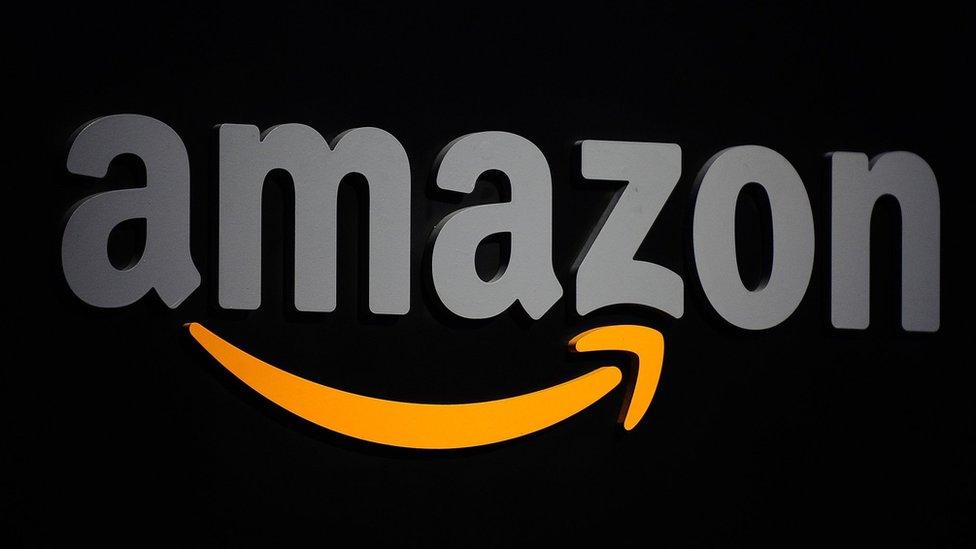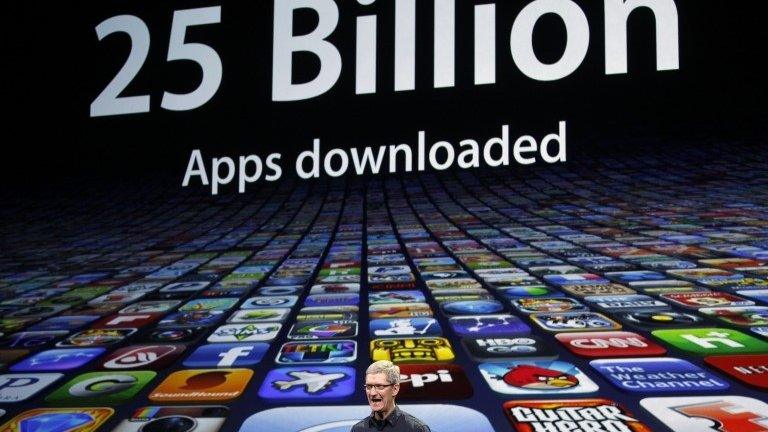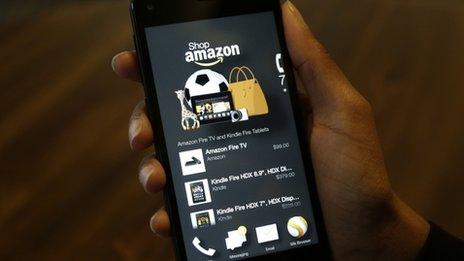Amazon rapped over unauthorised in-app purchases
- Published

Amazon illegally charged parents for children's in-app purchases between 2011 and 2014, a US judge has ruled.
In 2014, the US Federal Trade Commission (FTC) sued Amazon over its handling of in-app purchases on its app store for Kindle and Android devices.
The FTC reached out-of-court settlements with Apple and Google over their app stores in the same year.
The trading watchdog said it would urge the court to demand full refunds for affected Amazon customers.
Many mobile games and programs offer in-app purchases, which let people spend real money on extras in games, music downloads or to unlock premium features.
Amazon, Apple and Google were all criticised when the concept was first launched, after a number of parents complained that their children had run up huge bills while playing games.

The FTC said in-app purchases were not clearly signposted
The FTC sued the three companies in 2014, with Apple agreeing to refund customers more than $30m (£20m) and Google about $19m (£13m).
Amazon first introduced in-app purchases in its app store in November 2011. According to the FTC's lawsuit the default setting "did not require account holder approval, by entry of a password or any other means, prior to completion of an in-app purchase".
The FTC also criticised the presentation of information in the app store, which it said was not clear.
The watchdog's data analyst Julie Miller suggested that Amazon had made $86m (£59m) from the in-app purchases, 42% of which were unauthorised.
But US District Judge John Coughenour questioned the accuracy of the figures, while Amazon said the estimates were "fundamentally flawed".
However, the judge sided with the FTC and said: "The millions of dollars billed to Amazon customers without a mechanism for consent, the thousands of customers complaining about unauthorised charges and the time spent seeking refunds for those charges, all demonstrate substantial injury.
"It is Amazon's stated policy that in-app purchases are final and non-refundable, likely discouraging much of its customer base from attempting to seek refunds."
The judge asked both parties for more information about how much money Amazon might owe consumers and has yet to decide damages.
Since 2014, Amazon has changed how in-app purchases are described in its app store and refined its authorisation experience. In-app purchases can be disabled completely with the company's parental control options.
Amazon did not reply to the BBC's request for comment.
- Published15 January 2014

- Published10 July 2014

- Published5 September 2014
